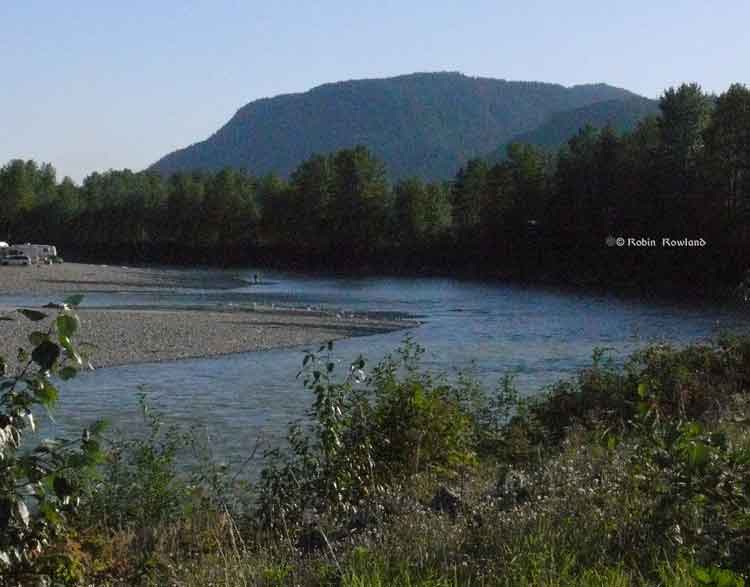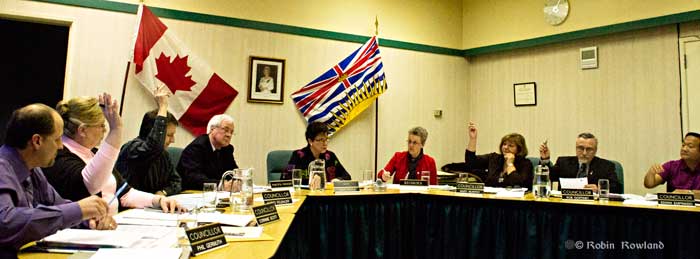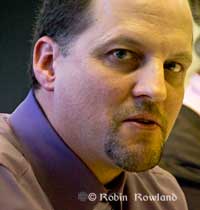
Fisheries and Oceans has once again snubbed District of Kitimat Council, by refusing to appear in public before council to answer questions about key issues.
At the Monday, March 10 council meeting, the snub was on the issue of who is responsible for the Kitimat River, facing “increased usage of the riverbank during future construction periods” as well as concerns raised by council earlier over waste left by campers.
In the fall, DFO also refused to appear before council when the department was asked to do so on the issue of Clio Bay remediation.
A report to Council from the District’s Deputy Administrative Officer, Warren Waycheshen, noted that district administration “was recently advised that Fisheries and Oceans are unable to participate in Council meetings, however, they will continue to meet at an operational level to provide information on DFO’s regulatory role.
Waycheshen’s report noted” “District Staff will continue to correspond with Fisheries and Oceans on riverbank camping, and when another operational meeting can be coordinated, Council will be advised of the date and time.”
In other words, DFO officials will continue to meet with district staff and council, in private, but are not accountable to the Kitimat public for their actions, except through what district staff may report to council.
The rest of the report consisted of quotes form the amended Fisheries Act and what appears to be a printout of a DFO Power Point presentation on how it sees its current role.
So now that the federal government appears to have downloaded responsibility to the District, the riverbank ball is now in the hands of Kitimat Council, whether or not the Council actually has jurisdiction.
Councillor Phil Germuth presented a motion asking that District staff prepare a map showing who exactly owns the land along the Kitimat River and what that land is being used for.
In the debate, Councillor Corrine Scott noted, “The first paragraph says Fisheries and Oceans won’t attend a council meeting. Fine, we’ve got that part. But then that’s it. Everything else is about the fisheries protection program and policy statements and all the rest of it. But it doesn’t actually answer the question about any concerns regarding waste left by campers and whether its okay or whether we should be putting in more garbage cans or that sort of thing.
“That’s what I was looking for from a report. What should the setbacks be? Should there be any setbacks. Should there be any camping? Do we have to have a certain number of receptacles for garbage? I just don’t know. I was expecting more than what we got out of this report.”
Councillors Mary Murphy and Mario Feldhoff noted that the District has done reports on how the riverbank is used.
District Planner Daniel Martin told Council that DFO has said the department has “no real concerns’ about people camping on the river “unless they begin to destroy fish habitat.” DFO told Kitimat staff. “If the District has concern about access to the river, then control access to the river.”
“I know that we have a report, it was a very, very good report,” Scott then said. “That’s not what we’re talking about. I was waiting to hear what Fisheries and Oceans has to say, I know what we’ve got and what we’re doing and what is being monitored. I thought motion was to find out from Fisheries and Oceans if there was some kind of other issues we should know about.” Scott noted that if Martin’s statement had been included in the report, she would have been satisfied. “I was waiting to hear what the Department of Fisheries and Oceans had to say.”
Germuth then pointed out that he wanted to know who the landowners are so if Council descies to control access to the river because, “If we put a gate up on the river, we’re not just controlling access for campers, we’re controlling access for everyone else that wants to go through. I want to know who owns the land, so if we decide to do something, we can chat with landowners.
“We’re not going to get anywhere with DFO,” Feldhoff said. “They’ve been here in the past, and , as I recall, they said they don’t think there is a problem. We may think there’s a problem but they don’t think it’s high enough in terms of priorities. So we might want to reacquaint ourselves with what was going on. There are enough reports to choke a horse, going back at least ten years.”
“Longer that that, I do believe,” Mayor Joanne Monaghan interjected.
Councillor Edwin Empinado agreed with Scott saying, “The response from DFO didn’t really answer the motion [the original question from Council]. Fisheries just gives us the Fisheries Act, their policies, regulations, guidelines, program changes. It doesn’t talk about riverbanks.”
Germuth’s motion was carried unanimously.
‘

